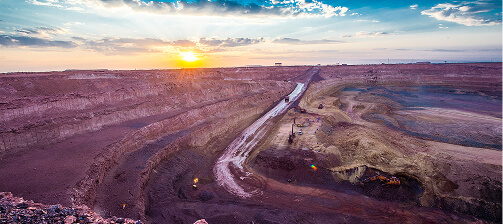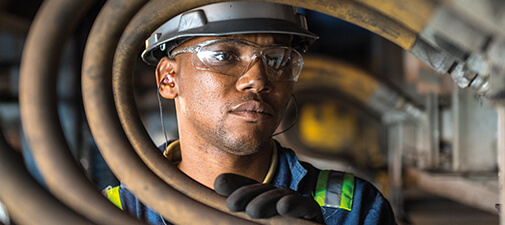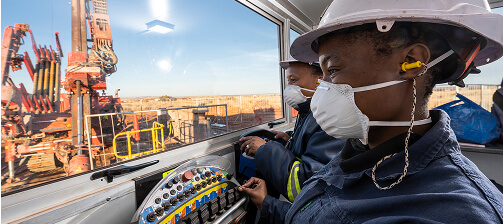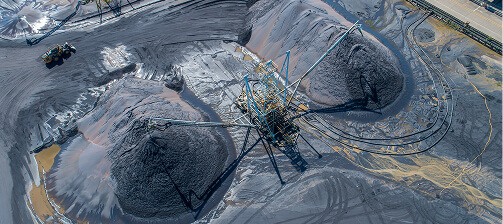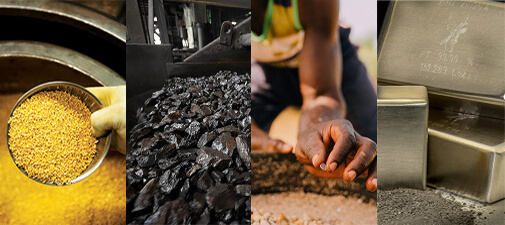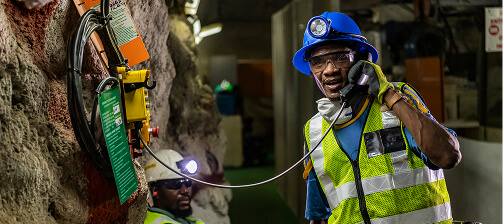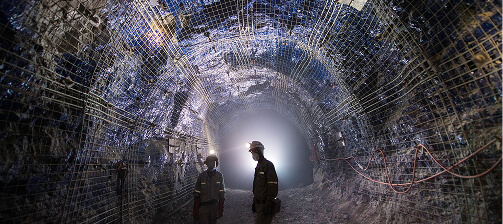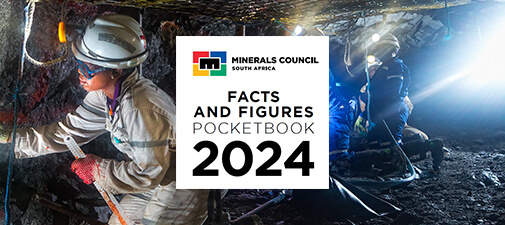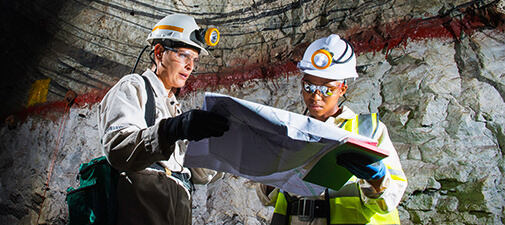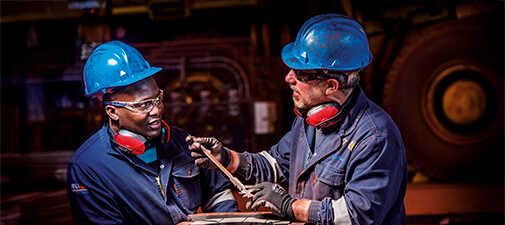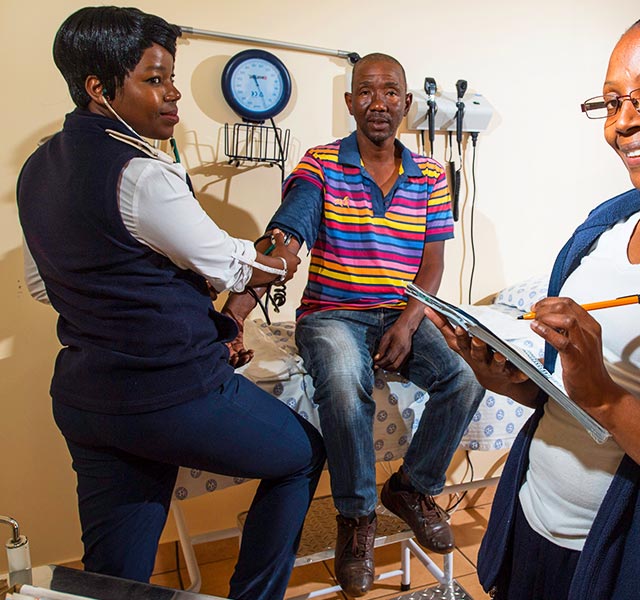The South African mining industry is committed to the principle of zero harm with the goal that every mineworker should return home unharmed every day. The Minerals Council, in conjunction with mining companies, aims to achieve world-class safety performance by working in close collaboration with tripartite partners in government and organised labour.
To track progress against industry health and safety milestones, the Minerals Council collates data from members, and tracks, evaluates and reports on performance. Through the tripartite Mine Health and Safety Council (MHSC), the Minerals Council is an active participant in the implementation of the Tripartite Action Plan on Health and Safety (2008).
Critical team members
- Nikisi Lesufi: Senior Executive: Health and Environment
- Sietse Van Der Woude: Senior Executive: Modernisation and Safety
- Dr Thuthula Balfour: Head: Health
- Stanford Mamoshito Malatji: Head: Learning Hub
The Minerals Council provides expert advice and support to members in the fields of occupational health, tuberculosis (TB) and HIV/AIDS and general worker wellness. Occupational health includes occupational medicine and occupational hygiene.
Context
The primary health challenges vary from sector to sector. Noise induced hearing loss (NIHL) is a health risk in almost all areas of mining as it is in all forms of industry. Occupational lung disease, particularly silicosis, is a major issue in the gold and coal sectors. All these are classified as compensable occupational health illnesses.
Both pulmonary TB and HIV/AIDS are significant public health threats in southern Africa, often with debilitating and potentially life-threatening consequences for employees and their communities. Where TB develops in the presence of silica dust exposure, this also becomes an occupational illness www.oldcollab.co.za.
The South African mining industry’s response to COVID-19 has been comprehensive, collaborative and effective. For more information on the mining industry’s response to COVID-19, see https://www.mineralscouncil.org.za/minerals-council-position-on-covid-19
Key activities
The Minerals Council supports the Tripartite Action Plan for the elimination of silicosis and noise-induced hearing loss (NIHL) and the Tripartite HIV and AIDS Plan for stopping the spread of HIV in the mining industry. The Minerals Council also participated in and supported the development of the SADC Declaration on TB in the Mining Sector, adopted by heads of state in 2012.
In managing TB, the industry follows the Department of Mineral Resources and Energy (DMRE)'s Guidance Note for TB Control Programmes. The most recent initiative is the Masoyise Health Programme which aims to reduce TB, HIV, non-communicable diseases and occupational lung diseases in the industry.
Improving compensation for occupational lung diseases is a priority and takes the form of support to the Department of Health’s Medical Bureau for Occupational Diseases and the Compensation Commissioner, as well as promoting amendments to legislation.
Key activities in which the health team is engaged are:
- Providing specialist expertise and advisory input on health-related matters to members, including the dissemination of information.
- Formulating industry policies and position papers on issues that will have an impact on the mining industry, and then representing the industry on these mandated positions in appropriate statutory and other forums.
- Regular and ongoing liaison with government departments and officials.
- Facilitating interaction and learning between medical representatives and hygiene specialists of member companies.
- Representing members and mining interests in various key forums such as the MHSC, including sub-committees.
External committees
The Health department participates in the following industry committees:
- Mine Health and Safety Council
- Occupational Diseases in Mines and Works Act of 1973 (ODMWA) Advisory Committee
- Compensation for Occupational Injuries and Diseases Board
- South African National AIDS Council
![Logo MCSA [logo]](/templates/chamber/images/logo.svg)

